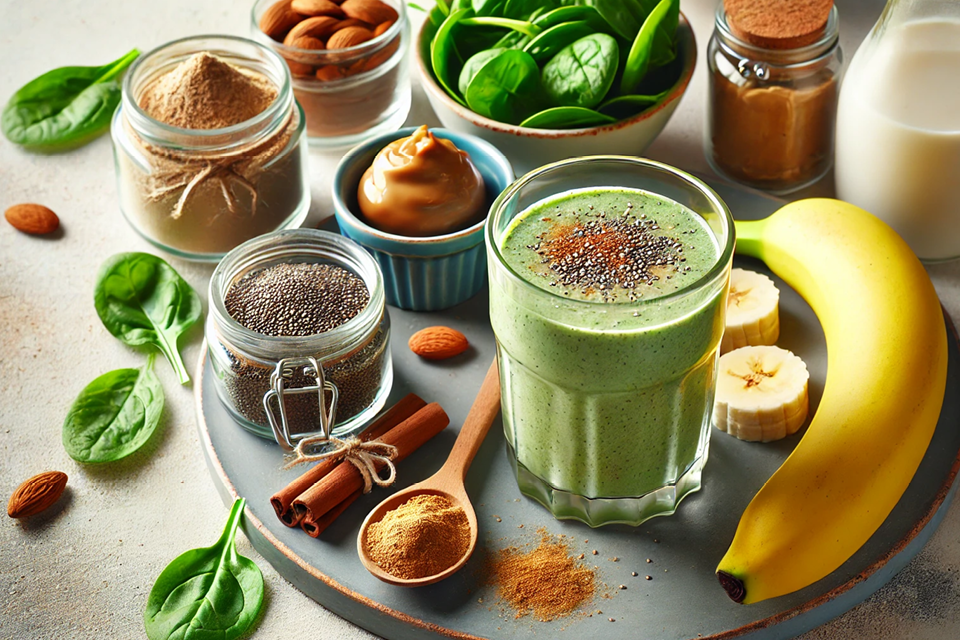As the temperature drops and the leaves change this fall, your grocery list should, too! Fall fruits and vegetables are not only more flavorful and fresher when eaten in season, but they also come with a host of health benefits. From fiber-packed apples and pears to beta-carotene-rich pumpkins and sweet potatoes, these seasonal superfoods can support everything from digestive health to immune function.
What makes fall produce special? Seasonal fruits and veggies are harvested at their peak, meaning they’re packed with nutrients, antioxidants, and flavor that your body needs. Plus, they’re often more affordable because they’re in abundance. Imagine loading up your grocery cart with crisp Brussels sprouts (fantastic for heart health), nutrient-dense sweet potatoes (a powerhouse for the immune system), and antioxidant-rich cranberries (great for reducing inflammation). These seasonal picks are not just tasty—they can help you feel and look your best as the cooler months roll in.
Ready to fuel your body with the best fall has to offer? Here are 11 nutrient-packed fruits and vegetables you should be eating this season.
1. Apples

An apple a day, right? Apples are a staple in the fall, and for a good reason. They’re loaded with fiber, which helps keep you full and supports digestive health. Apples are also high in antioxidants, particularly polyphenols, which have been shown to lower the risk of heart disease and stroke (Journal of Nutrition, 2019).
2. Pumpkin

Pumpkin isn’t just for pie! This bright orange squash is rich in beta-carotene, which your body converts into vitamin A. Vitamin A is essential for immune health, vision, and skin health. A study in Food & Function (2020) showed that beta-carotene-rich foods, like pumpkin, can help reduce inflammation and improve overall skin health.
3. Sweet Potatoes

Sweet potatoes are a powerhouse of nutrition, packed with fiber, vitamin C, and manganese. They’re also one of the best sources of beta-carotene, an antioxidant that supports your immune system and may help protect against certain cancers (Advances in Nutrition, 2021).
4. Brussels Sprouts

Brussels sprouts are part of the cruciferous family, which means they’re bursting with glucosinolates – compounds shown to help protect against cancer (Journal of Agricultural and Food Chemistry, 2020). These tiny green veggies are also a fantastic source of vitamin K, which is essential for bone health and blood clotting.
5. Pears

Pears are high in fiber, which can aid digestion and help maintain a healthy gut. They also provide a good source of vitamin C and potassium. According to a 2021 study published in the British Journal of Nutrition, regular pear consumption is linked to improved heart health and a lower risk of cardiovascular disease.
6. Butternut Squash

This creamy, sweet vegetable is high in vitamins A and C and is a fantastic source of fiber. Butternut squash’s rich antioxidant profile, especially beta-carotene, has been associated with a reduced risk of chronic diseases like heart disease (American Journal of Clinical Nutrition, 2021).
7. Cranberries

Cranberries are known for their role in preventing urinary tract infections, but they’re also brimming with antioxidants like anthocyanins, which have been shown to reduce inflammation and improve heart health (Journal of Nutrition & Food Sciences, 2022). Add them fresh to your salads or oatmeal this fall!
8. Persimmons

Persimmons might get overlooked, but these orange fruits contain fiber, vitamins A and C, and antioxidants like beta-carotene and lycopene. A study published in Nutrients (2020) found that persimmons may help lower cholesterol and improve heart health.
9. Beets

Beets are known for their deep red color and unique earthy flavor, but they’re also great for your health. They’re high in nitrates, which help improve blood flow and lower blood pressure (Hypertension, 2020). Beets are also a good source of folate, a key vitamin for cell growth and development.
10. Grapes

Fall is grape season, and these juicy little fruits are full of antioxidants like resveratrol, which has been linked to improved heart health and reduced inflammation (Journal of Cardiovascular Pharmacology, 2021). Grapes are also rich in vitamins C and K, making them a nutritious snack or addition to salads.
11. Figs

Figs are sweet, fiber-rich fruits that are great for your digestive health. They also contain a variety of essential minerals like calcium, magnesium, and potassium. A study in Food Chemistry (2020) found that figs’ high antioxidant content can help combat oxidative stress and inflammation in the body.
Wrap-Up: Why Seasonal Eating Matters
Eating with the seasons isn’t just better for your health; it’s also a way to enjoy more flavorful produce. Seasonal fruits and vegetables are often fresher, meaning they retain more nutrients, and since they’re harvested at peak ripeness, they tend to taste better, too. This fall, make it a priority to fill your cart with these nutrient-packed options and enjoy all the flavors of the season.






